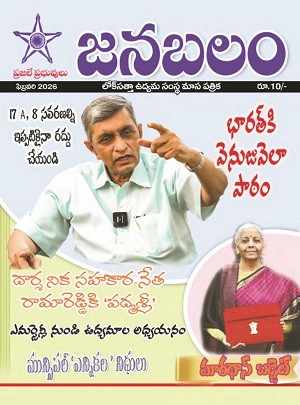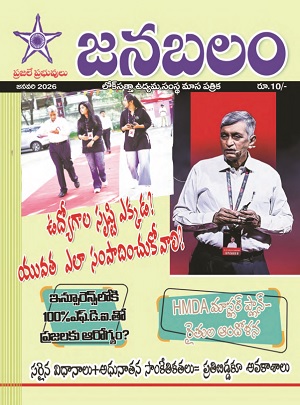Every concerned citizen, every passionate soul lamenting the decline in our political culture, must whole-heartedly welcome the resounding verdict of Delhi Voters in favour of AAP. This is a victory of new politics for a new generation.
Those who yield to cynicism and despair are once again proved wrong. This election has significance beyond Delhi, and beyond the fortunes of political parties. It is important to decipher the meaning of this verdict. If we indulge in traditional zero-sum analysis, and treat it as a part of power game, India will lose.
There are three important messages from voters of Delhi. First, people are demanding a new political culture. This vote above all is rejection of politics as usual, against kleptocracy, plutocracy, dynastic politics, and politics as private business and personal aggrandizement. This is a verdict for politics involving partnership of middle classes, youth and the poor. All traditional parties are trapped in a vicious cycle. In a poor, illiterate country it is easy to fall into the trap of vote buying, polarization based on primordial loyalties and freebies. BJP is better than Congress because they stayed away from dynastic politics and freebies. They also showed readiness to embrace credible faces and elevate them to leadership. But these are still initial, symbolic steps. What we need is a new culture in which any talented, passionate citizen can join a party and emerge as a leader quickly through her ability, agenda, leadership skills and persuasive power. In other respects of use of abnormal, unaccounted money power, a culture of centralization, and people divorced from politics and treated merely as voters and vote banks are common to all traditional parties. The hapless people are now saying enough is enough. We want a new people-centered political culture.
Second, this verdict is not about Modi’s fall from grace. Modi and BJP were elected with a mandate to promote growth, jobs and good governance at the national level. AAP is elected for a new political culture and decentralized governance empowering people and accountable to them. These two are not contradictory; they are complementary. Modi erred in investing his political capital in a local election. This is not about monopoly of power everywhere. Elections to Parliament, state, city and panchayat are not the same. People of Delhi, being more mature politically, understand the difference between Parliament and Panchayats. Each tier has its role, and people know that real delivery and accountability are at local level.
Third, this does not make all arguments of AAP right. AAP’s advocacy and struggle for people-centered, participative, corruption-free politics are vital and people resoundingly endorsed it. But this is not an uncritical endorsement of anarchic, anti-institutional political culture of AAP, nor is it is a support for short-term freebies at the cost of infrastructure, education, healthcare and jobs that will eliminate poverty.
All of India wants to see a new political culture. This yearning for new politics found dramatic expression in Delhi because of a combination of happy circumstances. The high income percapita and literacy of Delhi, the more nuanced political awareness, absence of polarization based on primordial loyalties, the crystallization of people’s attitudes because of the anticorruption and women’s safety movements centered around the capital city, the sustained and breathless media attention for over two years, and the political vacuum created by the elimination of Congress from the competition created conditions for a perfect storm. The result is a remarkable verdict that has the potential to reshape our politics.
The established traditional parties steeped in the old political culture must now respond creatively and wisely. This is not about turf war. This is a fight between the old, centralized, dysfunctional, increasingly illegitimate political order and the new generation political order. If they utilize this opportunity and find the courage, leadership and energy to transform their parties and make them people-centered and free from the scourges of plutocracy and kleptocracy, India will swiftly emerge as a great democracy; not merely the largest democracy.
The champions of new politics must correct serious flaws to become a part of the solution. Many AAP leaders and activists earlier, during IAC days, rejected politics and made dramatic, emotional, irresponsible pledges: sample – politics is illegitimate, they will never join politics, and if they do, they should be beaten with chappals. It is a sign of maturity that they had recognized that true politics is noble and central to democratic society, and embraced politics with a gusto. But they still resort to anarchic politics of vituperation, protest and nihilism doing immense damage to the society and institutions of state. Mature deliberation, informed debate, enlightened public discourse, mutual respect, commitment to rule of law, civility and willingness to persuade or accept the other point of view – these are the foundations of a robust, mature, progressive democracy.
And it is not enough to fight for clean politics. New politics cannot promote short-term freebies and reckless populism at the cost of a better tomorrow. Quality education, healthcare, infrastructure, skills, jobs, and effective, corruption-free service delivery – these are the only real means of eradicating poverty.
This is a moment of great opportunity and hope. We need to now forge ahead. A large, complex, continental nation will not change overnight. But change for the better it will; it is only a matter of relentless effort and time. Let us rejoice the moment and accelerate this process of change.
Tuesday, February 10, 2015
What does the Delhi verdict mean?
Subscribe to:
Post Comments (Atom)





No comments:
Post a Comment